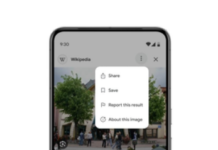New Delhi– Nearly seven out of 10 consumers in India were targeted by a tech support scammer in the last 12 months, finds a report released by Microsoft on Thursday.
The report titled ‘2021 Global Tech Support Scam Research’ looks at tech support scams and their impact on consumers. It is based on a global survey, commissioned by YouGov, of 16 countries, including four Asia Pacific markets — India, Australia, Japan and Singapore.
The findings showed that consumers in India experienced a relatively high scam encounter rate of 69 per cent in the last 12 months. In contrast, there was an overall five-point drop in scam encounters globally with a rate of 59 per cent over the same period.
Almost half of consumers surveyed in India (48 per cent) were tricked into continuing with the scam, three times higher than the global average (16 per cent).
Further, millennials (58 per cent) and males (73 per cent) were found to be most susceptible to losing money from scams.
Unsolicited call scams, which increased from 23 per cent to 31 per cent in India between 2018 to 2021, continues to be the scam type that consumers in India respond to most often.
Consumers in India lost Rs 15,334 on average to scams in 2021, of which Rs 10,797 was recovered. The most common methods of payment for those who lost any money were through bank transfers (43 per cent), followed by gift cards (38 per cent), PayPal (32 per cent), credit cards (32 per cent), and Bitcoin (25 per cent).
“Tech support scams are perpetrated globally and target people of all ages. The findings reveal that compared to the rest of the world, consumers in India are more likely to be targeted, less inclined to ignore scam interactions, and as a result, lose more money. There is an urgent need for consumers to understand this threat and to protect themselves from such scams,” said Mary Jo Schrade, Assistant General Counsel, Regional Lead, Microsoft Digital Crimes Unit Asia, in a statement.
“Tactics used by fraudsters to victimise users online have evolved over time, from pure cold calling to more sophisticated ploys, such as fake “pop-ups” displayed on people’s computers. We are committed to online safety and hope to leverage the survey findings to better educate people so they can avoid becoming victims of these scams,” she added.
Microsoft recommends consumers to be suspicious of pop-up messages on the computer, and not to call the number or click on the link in any pop-ups received. Consumers must download software only from official company websites and be wary of downloading software from third-party sites, the company said. (IANS)
















